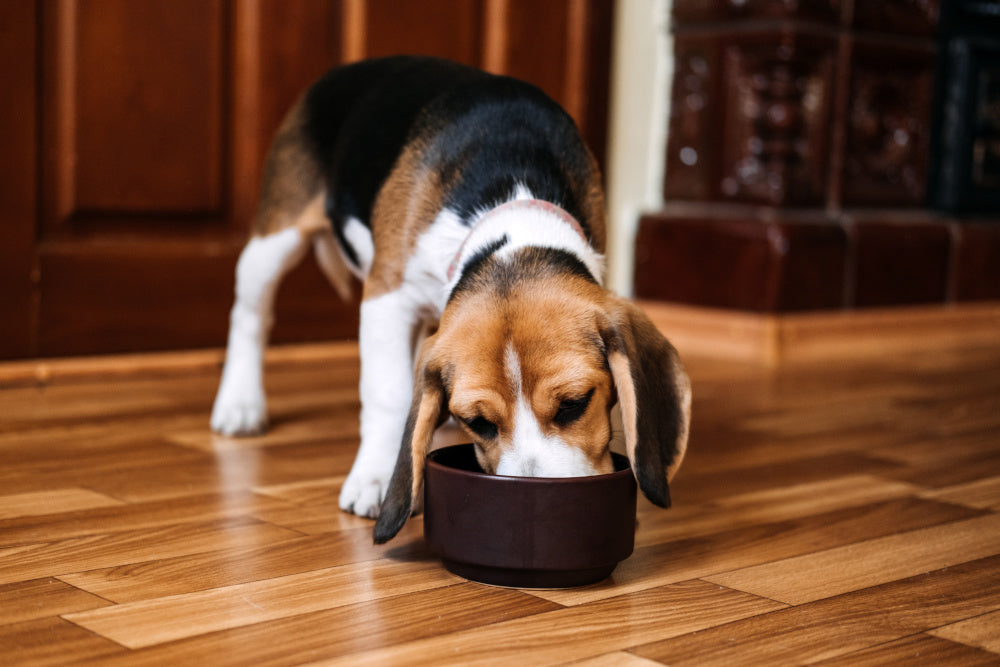If your dog is being anxious, hyper, or uninspired during training, your initial thought could be to blame their personality or lack of discipline. Did you know that your dog's gut health and nutrition are essential for their behavior and, in the end, for how well they learn?
Let's examine how your dog's digestive system impacts their attitude, energy, and learning ability, and explore potential solutions.
The Link Between Dogs' Guts and Brains
People often call a dog's gut its "second brain," just like they do with people. The gut microbiome is made up of trillions of microorganisms that make neurotransmitters like serotonin and dopamine. These are substances that change mood, motivation, and focus.
A gut that works well means a brain that works well. An unbalanced gut might make you more anxious, stressed, and hyperactive. New research suggests that dogs with bad gut health may have more behavior problems, such as:
- Barking or complaining too much
- Being scared or reactive
- Training sessions are hard to focus on
- Licking or chewing too much
- Anxiety about being alone
How Food Affects How Dogs Act
The food you give your dog has a direct effect on the bacteria that live in their intestines. A good diet is nutritionally balanced and packed with gut healthy ingredients, such as real meat, healthy grains, fruits and veggies, omega-3s, prebiotics, and probiotics. A properly balanced diet, formulated for gut health will:
- Help with healthy digestion
- Keep energy levels steady
- Make your mind clearer
- Make yourself feel better and more confident
On the other hand, many store-bought kibbles are full of fillers, fake preservatives, and low-quality protein sources. These can upset the balance of bacteria in the gut and cause inflammation, not just in the body, but also in the brain.

Why It's Important to Keep Your Dog's Gut Healthy while Training
To train your dog, you need to pay attention, trust them, and be emotionally stable. If your dog has stomach problems or a microbiome that isn't working right, they are less likely to:
- Follow commands in a good way
- Stay on task during sessions
- Stay cool while you're around new people or places.
- Keep new skills for a long time.
It's a good idea to look at what's going on inside a dog's body before calling it "stubborn" or "difficult." A better diet could help your dog become more trainable and sensitive by fixing imbalances in their body.
A Real-Life Example: Training and Nutrition Go Hand-in-Paw
More than 5 million dog owners have used the positive reinforcement dog training packages through the Dogo App. They report that dogs that eat a regular, high-quality food tend to reach their training goals more quickly.
When dog owners make their pets' diets and gut health better, they typically say:
- More attentiveness and interest during lessons
- Less nervous actions like pacing or eating
- Learning faster and being able to pay attention for longer
In summary, eating well makes your training work better.
How to Help Your Dog's Gut Health
Want to make sure your dog feels well inside and out? This is how:
1. Pick a Dog Food That Is Good for Their Stomach
Find dog food that has:
- Meat is the first thing on the list
- No added chemicals
- Added probiotics and prebiotics
- Fish or flaxseed oil with omega-3 fatty acids
Nextrition cold-pressed dog food is made with this in mind: using clean, functional foods that help with digestive and overall health.
2. Stay away from things that mess with your gut
Stay away from foods that have:
- Fillers made of corn, soy, or wheat
- Meals made from animal by-products
- Synthetic preservatives, such as BHA/BHT
3. Keep an eye on your stool and digestion.
If you have loose stools, a lot of gas, or bowel movements that aren't regular, it could be an indication that your gut is out of balance. Don't ignore persistent back-end performance issues and what they are saying about your pup’s health.
4. Mix good nutrition with good training
The leash isn't the first thing you need to train your dog; the gut is. A dog that eats well and has a healthy gut is more focused, emotionally stable, and eager to learn. You are giving your dog a good chance of long-term success by giving them food that is good for their gut and disciplined training.
If you're teaching your puppy to use the bathroom or helping your adult dog break undesirable habits, keep in mind that a happy gut means a happy pup and better training.
Are you ready to improve your dog's health and behavior?
Download the Dogo App for tailored training help and try Nextrition Cold-Pressed Dog Food made with all-natural ingredients and expertly formulated to promote a healthy gut.
Sources:
NIH: The gut microbiome and how it affects behavior
The Gut-Brain Axis in Canine Behavior: Frontiers in Veterinary Science





